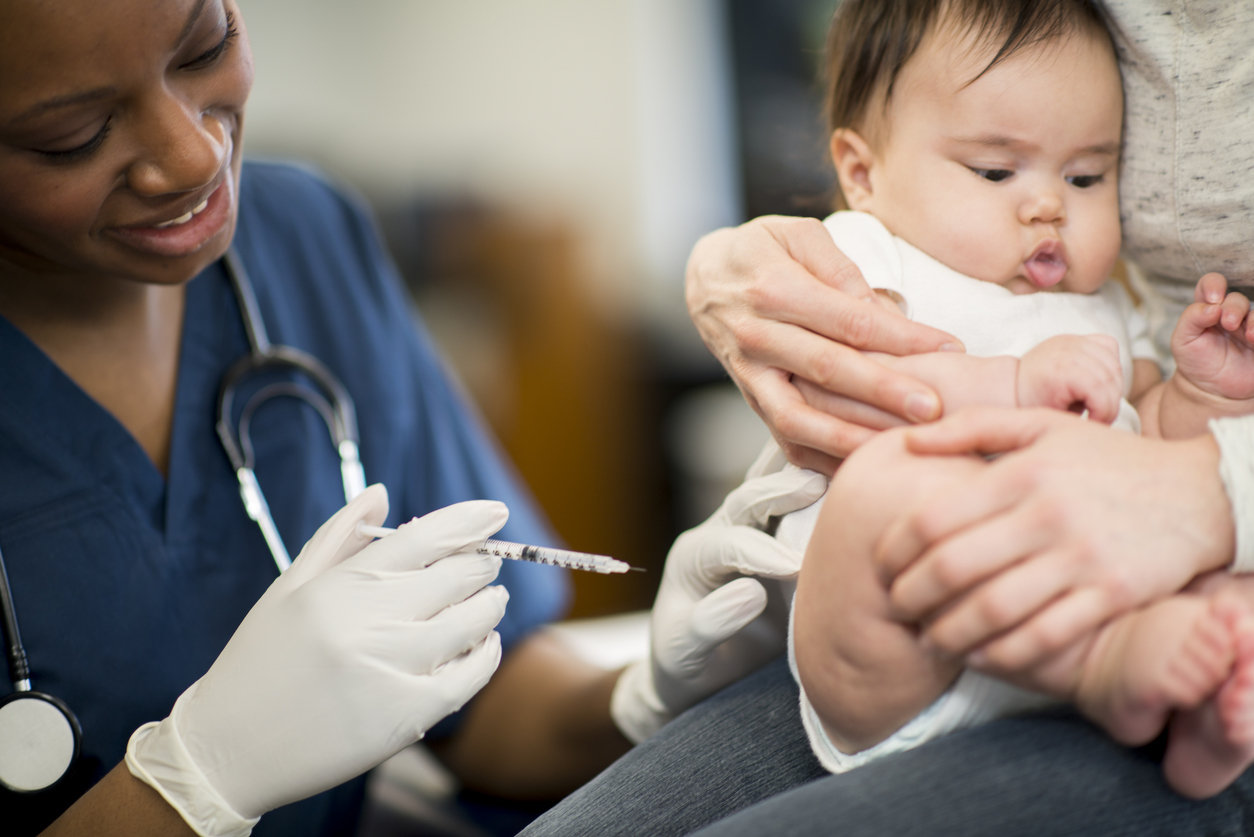
Although social distancing measures, testing, and therapeutic drugs hopefully will continue to flatten the curve and prevent infections and deaths, the end of the global pandemic hinges on a vaccine, which the medical community hopes will be available in 12 to 18 months. It's this reality that is helping to change the minds of some people who previously opposed immunizations.
CNN spoke to one woman who described herself as "fully anti-vax" when her daughter was born last year.
Haley Searcy, a 26-year-old from Florida, told CNN, "I was just as scared of vaccines as I was of the diseases they protect against." When her daughter's pediatrician advised that she vaccinate her daughter, she "begrudgingly allowed" it, while remaining suspicious.
Then, the coronavirus crisis hit.
Searcy now says she's "seen firsthand what these diseases can do when they're not being fought with vaccines." That's because her mom has lung disease.
"I learned as much as I could to speak out against misinformation in the hopes that I could convince more people to stay home and follow social distancing so that she won't get sick," she told CNN. "So many lives are at stake, including people I care about who are very vulnerable."
The mom researched how the world had dealt with pandemics in the past, learning how the eradication of recent viruses such as swine flu (H1N1) hinged on immunization.
"And I've learned just how rigorous vaccine trials are before they're made available to the public," she said. "I wasn't actively looking for vaccine information but the more I learned, the more I realized it would help and the easier it became to recognize the lack of science in anti-vax arguments."
Searcy's epiphany is one that some other anti-vaxxers are also having now.
Heidi Larson, director of Vaccine Research Project, a research group at the London School of Hygiene and Tropical Medicine, explained to CNN that as number of deaths from the coronavirus increased and public awareness of its seriousness grew, people have become more willing to accept a vaccine. "I think it definitely is provoking people to rethink a lot of things," she said.
Still, Larson pointed out that we'll do well to track more data over time.
Larson also described this moment as "an important time to reflect on the value of vaccines."
"If we had had a vaccine for this, we wouldn't be locked up in a room, the economies wouldn't be crumbling, we would have been a whole different world," she noted. "The question I would ask is, do we have to wait for something to be this bad?"
Meanwhile, the vaccination conversation is taking center stage in local politics.
David Zuckerman, a politician who proudly fought against government-mandated vaccinations, is running for governor in Vermont.
“In moments like this, we see just how critical it is that we support vaccines and make them as available as possible,” said Rebecca Holcombe, the state’s former education secretary who is challenging Zuckerman for the Democratic nomination in the August primary, according to Politico.
“It's scary that anyone in public office or seeking public office would cast doubt about the value of vaccines," she said. "It's unbelievable this is even up for debate."
It was clear even before the pandemic: Distrust in vaccination is a major threat to public health.
"Vaccine hesitancy” was named one of the top 10 threats to global health for 2019, according to the World Health Organization, which cited a 30% increase in measles cases worldwide in the report.
The organization also pointed out that immunization is one of the most cost-effective ways of avoiding disease, preventing 2 million to 3 million deaths per year, and advising that another 1.5 million deaths could be avoided if global coverage of vaccinations improved.
Here's hoping this disaster only serves to underline these facts — and get even more people on board with the steps we all need to be taking to bolster public health.




